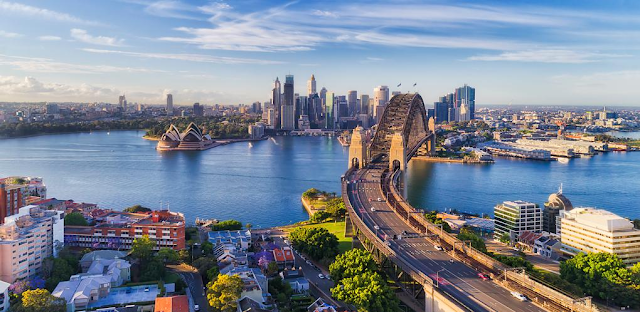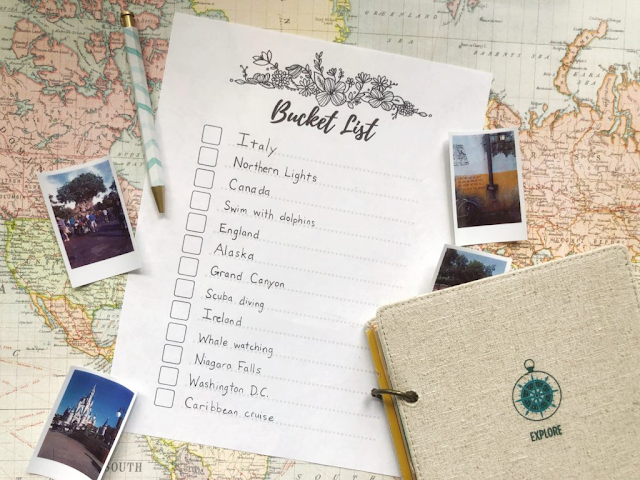Top 10 Travel Mistakes Around the World (and How to Avoid Them)
An exciting experience is organizing a trip abroad, especially your first one. You search through Instagram and Pinterest for travel-related ideas, look for the ideal suitcase, and even research hotel rates in advance. How about finding out how to travel internationally without making mistakes?
Preparing for a trip abroad requires more time and work than planning a local break due to things like visa procedures, voltage variations, and language hurdles. Check out this top 10 list of foreign travel errors whether you're preparing for your first trip abroad or you just need a refresher (and how to dodge them).
#1: Overpaying for plane tickets
The internet is full with tips for reducing the cost of airline tickets. Purchase them on Monday. Wait, it's 7 o'clock on a Tuesday! Order them three months beforehand. But if you're travelling to France in the summer, six months. And depending on algorithms used by the airline industry, the advise is updated annually.
Everyone is aware of how expensive it is to purchase a last-minute plane ticket. But did you know that the cost of a ticket can vary from day to day by hundreds of dollars? The conventional wisdom of making purchases early in the week and well in advance is no longer valid.
How to avoid it:
I check costs and keep track of fares using Skyscanner as soon as I decide where I'm going.
Skyscanner not only compares costs for flights on numerous airlines, but it also includes a useful "display complete month" tool that will enable you to pick the least expensive days to fly out and back. Additionally, if you select non-cheap dates, the calculator will show you how much money you may save by switching one of your dates.
For numerous selections, you may also set up price notifications to watch if the offers change.
Another excellent choice for price notifications is Hopper.
Simply enter your various departure and return options (including a few if the date of your trip is changeable), and the app will alert you to changes in pricing. Hopper's notifications are useful since they inform you if you should book immediately at the current price or wait and see if prices drop.
#2: Failing to get an entry visa
Citizens of the US, UK, or EU are pampered by advantageous travel arrangements. So much so that until a few weeks prior to your trip, you might not even consider looking into visa requirements.
This might be one of those foreign travel blunders that ends your entire trip before it even begins, depending on where you are going.
Sometimes, obtaining an entry visa is a straightforward process. However, for some nations with severe travel regulations, it may take weeks to compile all the required documentation and have your visa accepted. Additionally, if you wait until the last minute to file for the entrance visa, you'll probably have to pay steep penalties to have the process sped up.
How to avoid it:
To confirm visa requirements, always visit the government website of your home country well in advance. Make sure to carefully read the regulations because different nations have varying standards for things like acceptable passport expiration dates and required vaccines.
Even if you've visited that nation before, it's still a good idea to examine the regulations because laws can and frequently do change over time (a famous example of this is the United States' infamous travel restriction).
If you're a citizen of the United States, you can type your destination nation's name into the search field on the Know Before You Go page of the State Department's website to discover visa and entry requirements.
#3: Forgetting your passport
You're probably wondering how someone could possibly lose their passport, yet even seasoned travelers make terrible mistakes when they go abroad.
My husband travels a lot for his job. A few weeks back, I asked him if he remembered to grab his passport when I got up at five in the morning. He had forgotten, and when I stopped him, he had already started to walk out the door. And if he hadn't noticed it till getting to the airport, he would have undoubtedly missed his flight.
Not the ideal way to embark on a global journey!
How to avoid it:
I advise using a two-pronged strategy when it comes to packing essential items like travel documents and prescription drugs.
Always utilize a packing checklist, first. I use a pretty thorough base list for every trip, and depending on where I'm going and how long, I tick items off as I travel. This guarantees that I will remember everything, including how to pack my passport and unplug power strips before leaving the house.
The third tactic I use is to associate getting your passport with another memorable event. For instance, I take off my wedding ring and place it where the passport was when I take my passport out of the safe. Because taking off my ring is so uncommon for me, I psychologically connect the two behaviors.
Try to devise your own memory tricks to help you remember to bring the essentials.
I usually advise getting travel insurance whether you're going away for two days or two months.
You can never tell when a family tragedy, travel delay, or injury will ruin your trip. However, you can defend yourself (and your bank account).
For the protection of my foreign travel, I utilize World Nomads.
Their insurance are reasonably priced, and their claims team is ready around-the-clock to assist you in times of need. Their policies cover anything from lost luggage to emergency medical care.
Get a quote right away and experience the comfort that comes with travel insurance!
#4: Exchanging a bunch of cash at an airport currency booth
Every international airport has currency exchange facilities, making them the most practical choice for changing money.
By providing poor exchange rates at airport booths, currency exchange organizations are eager to take advantage of our foreign travel errors. Airport currency exchange counters aren't always open 24 hours, which increases your costs.
If your trip is delayed and you don't arrive until after midnight, your plan to exchange money when you get there could backfire.
How to avoid it:
The answer seems obvious at first. Upon arrival, you can simply withdraw cash from the airport's ATM or use a credit card to make a purchase.
Unfortunately, even if your bank card is chip-enabled, not all overseas ATMs will accept it. You'll also need cash in many nations to get from the airport to your next location.
Instead, before you leave, exchange enough money to pay for your transportation charges from the airport. Do some web research to obtain a general estimate of how much public transportation and a cab will cost, then adjust your exchange. I promise you it's worth it to have some of the local money in your wallet for piece of mind.
You can withdraw additional cash after you get to your destination, assuming the ATMs there accept your bank card (always confirm this before you go). Consider the local customs, your travel plans, and your bank's foreign transaction charge policy when determining the withdrawal amount.
For instance, it makes sense to withdraw enough money to cover your daily needs in Japan where many businesses still only accept cash. You should also make as few withdrawals as you can if your bank charges foreign transaction fees.
You can order currency online from several big banks and currency exchange businesses if you require a lot of cash for your trip and ATMs aren't an option. For delivering the funds, they often impose a set fee, but the exchange rates will be significantly better.
#5: Not packing a travel adapter
Did you know that there are 15 different types of plugs in use worldwide?
You'll need an adaptor if you're going somewhere that has a different kind of plug so that you can use the electrical appliances from your home country. Directly plugging into a USB port can help you get around the problem. But typically, depending on the amount of power required, your devices would only charge slowly or not at all.
How to avoid it:
Purchase a flexible adaptor with USB ports and put it in your suitcase as soon as possible. The universal ones available on Amazon are somewhat portable and function with a variety of devices that accept different voltages (modern smartphones, tablets, etc.).
However, without the third prong to provide stability, these adapters frequently fall out of the socket when visiting the US, Japan, or any other nation that solely utilizes two-prong plugs. Additionally, a lot of universal adapters don't have the wattage rating to charge power-hungry devices like laptops.
The Ceptics World Travel Adapter Kit is the travel adapter I personally like. It's a little bit larger than the all-in-one universal adapters, but it powers a lot of gadgets without yanking them from the wall. A true win-win situation.
#6. Frying your electronic devices
Setting fire to your hotel room and damaging your laptop are rather grave transgressions when it comes to foreign travel. Unfortunately, not all of your devices will charge just because you bought a travel adapter with the correct plug form.
There are distinct voltage (V) supplies that come from outlets in every location of the world. For instance, the voltage supply in the US is 120V. (you may also see 110V). It is 240V in Malaysia.
Things will go wrong if, for example, a hair dryer designed for 120V is plugged into an outlet that can handle twice as much electrical power. Additionally, it might be disastrous to connect a 240V gadget into a 120V socket.
How to avoid it:
Not yet clear? Fortunately, most contemporary gadgets will work with the entire voltage range (110-240V). You can actually get by with simply an adapter for nations like Canada and Japan that have voltages that are relatively similar. However, single-voltage products typically have heating elements or motors, such as hair dryers and beard trimmers.
The acceptable voltage range can be found in the plug, the device, or the handbook. Make sure to check the rating for the cord if your device has a power cord with a bulky plug or a brick. My US Nintendo 3DS, for instance, can handle various voltages, but the power connection is only rated for 120V.
You have two choices if you must bring a device that isn't compatible with the voltage of your destination: buy a travel converter or charge it via a USB port.
BESTEK is a step-down travel converter that I usually recommend if you're going from the US to a nation with a higher voltage because I've always had success with it. On Amazon, you may also get step-up converters that let you use higher voltage appliances in places with lower voltage outlets (such as switching from the UK's 220V to Canada's 120V).
You can completely eliminate the voltage conversion headache if your device can be charged via USB. When compared to plugging directly into a wall outlet, USB power operates differently. You may utilize the USB connections on the TVs and lamps/nightstands in many hotels.
USB ports are frequently built into outlet covers in contemporary hotels. As USB doesn't offer as much power as plugging into an outlet, be careful to allow enough time for charging.
#7: Running out of phone battery
My phone died, and I once got lost at night in Texas. Since it was after midnight, almost everything was shut.
Thankfully, after anxiously scurrying around in the dark for 30 minutes, I discovered a Target that was open till 11. When I put my phone into a wall socket and started the GPS, I saw that I was practically right next to my hotel. Whoops......
Navigation isn't the only issue with a dead phone battery. Additionally, it's about connection, safety, and preserving moments.
I use my phone while traveling to take pictures, translate menus, check train schedules, and get in touch with my husband in case we become separated. A charged phone is even more necessary when you're on a solitary vacation.
Putting all of your proverbial eggs in one basket is rarely a good idea. However, having a camera, phrasebook, maps, and phone in your luggage is also uncomfortable.
How to avoid it:
Anywhere in the world, you can keep your phone powered up with a rechargeable battery pack. My preferred PowerCore series from Anker is available in a range of sizes and charging capacities.
I personally keep an Anker PowerCore II 10000 in my bag at all times.
This tiny device is small enough to fit in your pocket and has the power to recharge flagship smartphones two to three times. A little travel pouch is also included, which I use to store the battery pack, USB cable, and USB wall plug (for recharging overnight).
Additionally, most phones offer a battery-saving mode that is simple to turn on and off. Your battery life will be greatly increased as a result, yet your phone will still be easily accessible. Of course, turning off your phone is the best battery-saving move if you won't need it for several hours.
#8: Having your card payments declined
No matter where you are, getting the dreaded "transaction refused" screen is awful. However, things get worse if you only use your card to make the foreign currency payment.
I once sat next to a couple in Japan who were scrambling to pay for their pricey dinner because two of their credit cards wouldn't process. To put it mildly, it was a bad experience for them. Fortunately, it's easy to prevent this situation.
How to avoid it:
Inform your banks and credit card companies of your intended trip before you go. Most banks have websites or mobile apps where you can accomplish this. The phone number for customer service is located on the back of your card.
You should be aware that the fraud department may detect and reject any sizable purchases you make while traveling. Prior to the purchase, you must make a separate call to your bank or credit card company.
I also advise bringing a backup card just in case the first one doesn't work, just to be on the safe side. Of course, keep some cash on you at all times.
#9: Assuming English and a couple of local phrases will be enough to get by anywhere
There is no doubting that travelers who speak English have things easy. Given that English is the most studied language in the world, it should come as no surprise that major cities around the world frequently display both English and their local tongues on menus, public transportation signage, and even traffic signs.
If you have a small vocabulary, it's not too difficult to get around in Paris or Tokyo's touristy regions. However, if you venture 50 km (50 km) outside of big cities or into a small neighborhood cafe, you'll wish you had invested more time in learning the native tongue.
You'll need to learn more than just politeness if you want to visit areas that the locals frequent or if you want to venture off the main path.
How to avoid it:
For any traveler, Google Translate is a need. Everything from facilitating a dialogue in two languages to translating text as you move your camera over it is possible with it.
Additionally, you can underline translated words and phrases and add them to your phrasebook for quick access. The nicest aspect is that you may download the whole dictionary for a language so that it will be accessible offline!
I download the offline dictionary for Google Translate for the language I'll be traveling to before every foreign trip. I then add any additional terms I might require for the trip to my phrasebook along with the same fundamental travel expressions.
It only takes a few minutes to complete the entire process, which makes visiting less popular destinations much less scary.
Spend some time learning the essential travel words for your nation if you don't want to be buried in phrasebooks and translation applications. You can listen to travel podcasts while commuting or performing household tasks.
Try a language study program like Memrise or Duolingo if you want to learn more than just the fundamentals.
#10: Spending hours in the bathroom instead of exploring
Discovering the local cuisine is my favorite aspect of overseas travel. I'm always looking for good food, whether it's at Michelin-starred restaurants or street food stands. I regret not having an iron stomach, thus my experiences are occasionally shortened.
I've had to cancel entire trips because I ate something I knew would upset my stomach. Getting sick used to be the most difficult mistake for me to avoid when traveling abroad.
Thankfully, it isn't the case anymore.
How to avoid it:
My go-to remedy for an upset stomach in a traveler is a tablet of Pepto-Bismol. They are constantly in my purse, a pack of them. When I'm about to consume something that could cause a bad reaction, I take a dose 30 minutes beforehand. It has been tremendously successful. This is not official medical advice because I'm not a registered physician.
Even if traveling internationally has many drawbacks, you can avoid them altogether with a little forethought and planning.
Make the most of technology, checklists, and a little foresight on your upcoming overseas vacation. Also, remember to grab your passport before leaving.
Have you committed any of these offenses? Post your tale in the comments section!
Read Article:





Comments
Post a Comment